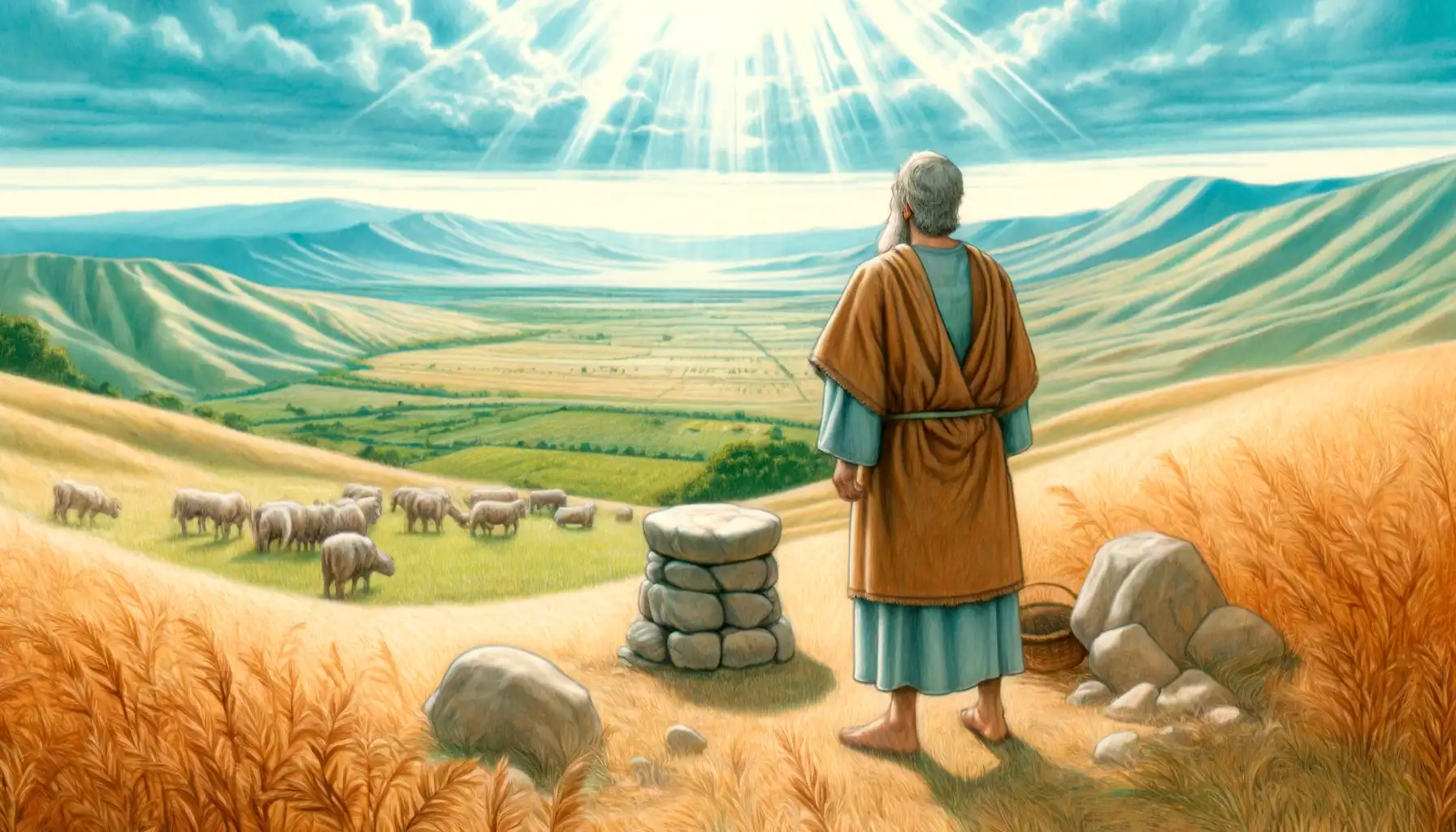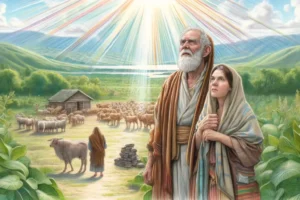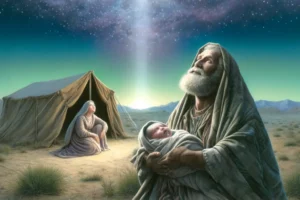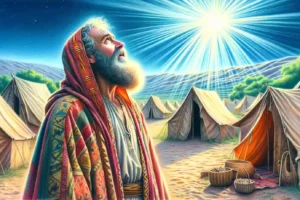
Abram’s Promise of Land
In Genesis 13:14-18, God reaffirms His promise to Abram, guaranteeing him and his descendants the land of Canaan, a pivotal moment in the establishment of the covenant relationship between God and Abram.
- Divine Reaffirmation: God reassures Abram by reiterating His promise to give him and his descendants the land of Canaan forever.
- Vision: God instructs Abram to look north, south, east, and west, emphasizing the vastness of the land promised to him.
- Inheritance: The land is promised not only to Abram but also to his offspring, ensuring a lasting inheritance.
- Numerous Descendants: God compares Abram’s future descendants to the dust of the earth, highlighting their innumerable nature.
- Journey through the Land: Abram is instructed to walk the length and breadth of the land, symbolizing his taking possession of it.
- Altar at Hebron: Abram settles by the oaks of Mamre in Hebron and builds an altar to the Lord, reaffirming his faith and devotion.
The promise of land to Abram, detailed in Genesis 13:14-18, is a cornerstone in the biblical narrative of God’s covenant with Abram, later known as Abraham. This passage follows the separation of Abram and Lot due to the increasing size of their flocks and herds, which necessitated more space. Once Lot chooses the fertile plains of the Jordan Valley, God speaks to Abram, reaffirming His earlier promise and providing further details about the extent and nature of the inheritance.
Context and Divine Reaffirmation
After Lot departs, God speaks to Abram, reaffirming His promise to give Abram and his descendants the land of Canaan. This reaffirmation is significant as it occurs immediately after a potential threat to Abram’s inheritance—the choice of the better land by Lot. By repeating His promise, God assures Abram that the divine plan is not hindered by human decisions.
Vision and the Extent of the Land
God instructs Abram to lift his eyes and look in all directions: north, south, east, and west. This command emphasizes the vastness and inclusiveness of the land that God is promising. The visual survey from a central point in Canaan symbolizes the comprehensive nature of God’s gift to Abram. The divine promise encompasses all the land Abram can see, reinforcing the certainty and scope of the inheritance.
Lasting Inheritance and Numerous Descendants
The promise extends not just to Abram but to his descendants forever, signifying a perpetual inheritance. This everlasting covenant underscores the enduring nature of God’s promises and the importance of the land in the identity and destiny of Abram’s offspring. God also compares Abram’s future descendants to the dust of the earth, emphasizing their innumerable nature. This metaphor highlights the vast number of people who will descend from Abram, pointing to a fulfillment that transcends immediate physical descendants to a broader spiritual progeny.
Journey through the Land
God instructs Abram to walk through the length and breadth of the land. This act of walking through the land symbolizes Abram’s taking possession of it, even though he does not yet own it in a material sense. It is a prophetic action, declaring Abram’s future claim and establishing his presence throughout the promised territory. This journey signifies both a literal and spiritual claiming of God’s promise.
Settlement and Worship at Hebron
Abram settles by the oaks of Mamre in Hebron and builds an altar to the Lord. This act of building an altar demonstrates Abram’s ongoing faith and devotion. It also serves as a public acknowledgment of God’s presence and promises. The oaks of Mamre become a significant location in Abram’s life, marking a place of divine encounters and worship. By building an altar, Abram consecrates the land, dedicating it to God’s purposes and solidifying his covenant relationship with God.
Theological Insights
- Faith and Obedience: Abram’s response to God’s command to walk the land and his act of building an altar reflect his faith and obedience. These actions are outward expressions of his trust in God’s promises, despite not seeing their immediate fulfillment.
- Divine Sovereignty: The promise of land to Abram highlights God’s sovereignty and faithfulness. God initiates the promise, and its fulfillment depends on His power and faithfulness, not on human actions or decisions.
- Eternal Covenant: The perpetual nature of the promise to Abram and his descendants underscores the eternal aspect of God’s covenant. It points to a divine plan that spans generations and has a lasting impact on the history of Israel and the world.
- Spiritual Progeny: The comparison of Abram’s descendants to the dust of the earth indicates a multitude that goes beyond physical descendants, pointing to a broader spiritual family that includes all who share in the faith of Abram.
Conclusion
The promise of land to Abram in Genesis 13:14-18 is a profound reaffirmation of God’s covenant, emphasizing the vastness, perpetuity, and divine nature of the inheritance. Abram’s faith and obedience in response to God’s commands highlight his exemplary role as the patriarch of a people destined to fulfill God’s redemptive purposes. This passage not only reinforces the importance of the land in the biblical narrative but also sets the stage for the unfolding story of God’s covenantal relationship with His chosen people.
Tag:Abraham, Abram, altar, Canaan, descendants, divine covenant, Faith, Genesis 13, Hebron, inheritance, Promise of Land



